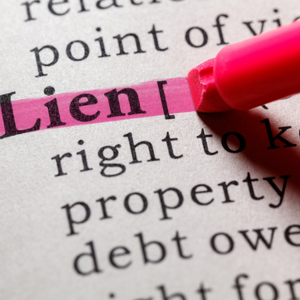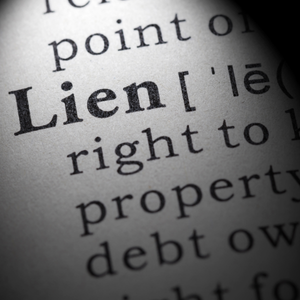
Although selling a home with a lien in North Carolina may appear to be difficult, there are ways to sell a liened property. All homeowners will face different types of liens, including tax liens or contractor liens, both of which may slow the selling process. Zack Buys Houses helps guide sellers through these challenges by providing solutions tailored to their specific lien situations. Knowing your options and the consequences of liens will help make the selling process as frictionless as possible. Once sellers understand the steps required to solve their property issues, they will be able to resolve challenges in selling their home efficiently and quickly, and even negotiate with lienholders. This will be the focus of the content, making sure the aim of the homeowners is to sell their property efficiently.
Understanding Property Liens in North Carolina
Liens must be considered when closing North Carolina real estate transactions, potentially complicating the selling process. Real estate owners must comprehend the full spectrum of taxes and involuntary liens to be adequately informed. Learning about property liens and North Carolina’s handling of such encumbrances helps fix any possible transactional issues. Understanding the particulars of real estate liens helps analyze the challenges and obstacles, and the impact of a lien on a property’s value. Analyzing the most plausible definition of a real estate lien and the impact of its definition is a good starting point.
What Are Property Liens?
A property lien represents a legal encumbrance on a property and a claim by a creditor, which indicates a financial obligation on the part of the homeowner. A lien can be defined, in more general terms, as a security interest given over a piece of property for consideration of a debt or some other obligation to be performed in the future. Competing claims for liens on property can range from taxes to claims from creditors for unpaid debts. Liens attach to the property and encumber the title, not the property owner. If the lien remains unpaid, it can restrict the owner’s ability to sell or refinance the property, as the lienholder has first claim to the proceeds in a sale, and the homeowner can only access the remaining funds after the lien is satisfied.
In real estate, property liens serve the function of guaranteeing the collection of payables, enabling creditors to retrieve funds if property owners do not fulfill their monetary obligations. The main categories of property liens include tax liens, which the state places to secure unpaid taxes, and involuntary liens, including those arising from judicial verdicts. Selling property indicates the need to take care of any outstanding liens, which, if left unresolved, may slow or complicate the transfer of the property. Familiarity with the defining features and various categories of liens constitutes the first step toward the effective management of property, including streamlining the sale of real estate in the North Carolina market.
| Type of Lien | Priority & Enforcement | Resolution Process |
|---|---|---|
| Mortgage Lien | High priority; enforced via foreclosure | Results from a court decision, enforced through levy |
| Tax Lien | Government priority; enforced through tax sale | Resolved by paying owed taxes and associated fees |
| Mechanic’s Lien | Filed by contractors; enforced through court action | Discharged by court order or settlement agreement |
| Judgment Lien | Results from a court decision, enforced through a levy | Removed by satisfying judgment or filing for bankruptcy |
| Homeowners’ Association Lien | Prioritized by community covenants; enforced with foreclosure | Cleared by paying outstanding dues and fees |
This table summarizes the primary aspects of property liens in North Carolina, serving as a guide for navigating their complexities in property transactions.
How North Carolina Handles Liens on Properties

In North Carolina, liens on a property require a defined legal procedure that considers the interests of both the debtor and the creditor. North Carolina, like other states, has to deal with the tax, involuntary, and other liens, all of which have unique legal procedures that have to be dealt with. Liens serve to encumber a property. North Carolina also follows the practice of publicly encumbering a property to provide a warning to buyers who later might want to encumber a property with a lien. Under North Carolina law, once the debt is paid, the lien is lifted and the creditor formally loses their claims.
In the sale of property, it is important for the debtor to know the potential legal complications. The law also provides that all liens have to be cleared beforehand or simultaneously with the sale, to ensure a clean title is granted. In addition to this, lien holders have to deal with their tax liens first, which provides for the quickest sale and title transfer. The more layers other liens have, the more challenges a debtor might face. Abiding by this law illustrates the importance of tax debt and lien settlement.
Also, if someone gets a lien attached to their property due to unpaid state taxes or some debts, the NC Revenue Department can take enforcement actions against them, including wage garnishment and bank levy. For other involuntary liens, such as those due to court judgments or bills unpaid to contractors, it becomes essential to negotiate the payoff or settlement of the lien before selling the property. For this reason, lien seekers are advised to perform a complete property lien search to identify and resolve any remaining liens, comply with state laws, and protect their rights in the property sale.
Can You Sell a Home With a Lien in North Carolina?
It is possible to sell your home for cash in Charlotte or nearby cities, even if there is a lien on the property. However, certain issues may need to be addressed before the sale can proceed. Liens—whether from unpaid taxes, defaulted mortgage payments, or outstanding contractor balances—must be resolved to clear title impediments. Understanding the legal implications and how liens affect sale proceeds is crucial. By properly handling these outstanding liens, North Carolina homeowners can achieve smoother transactions and better results in the state’s competitive real estate market.
Legal Considerations for Selling With a Lien
In NC, selling a house with a lien requires legal obligations, as well as transparency; all liens, tax or otherwise, must be disclosed to prospective buyers to ensure there is no misunderstanding, as well as to comply with the law on the state and local levels. Different liens have different legal implications; for instance, tax liens must be cleared before a transfer of ownership, as tax liens are the most dominant. Also, delinquent HOA dues and unpaid debts must be settled or, at the very least, be negotiated with the lien holders prior to or at closing, as well. This type of avoidance turns up in a pleasurable and compliant airflow on the sale.
After all liens are identified, sellers must make sure that these liens are either satisfied and/or negotiated for release prior to the sale, to ensure clear title transfer. Negotiating with the lien holders to pay off the lien or settling for less can be effective if done right. In some cases, sellers can have the lien amount deducted from the sale proceeds, so the buyer effectively “covers” the lien in the price adjustment. Successfully solving these legal issues requires extensive proactive planning and the assistance of lawyers who specialize in lien-related legal issues in North Carolina real estate. As a final transition to the effective management of property liens in real estate sales in North Carolina, sellers are offered the following prudent advice:
- Obtain Full Disclosure: Ensure all lien information is accurately disclosed to potential buyers to maintain transparency and avoid future disputes.
- Negotiate with Lienholders: Work collaboratively with lienholders to potentially negotiate a reduced payoff amount, which can facilitate a smoother sale process.
- Consider Legal Assistance: Engage a real estate attorney to navigate complex lien issues and provide guidance throughout the transaction to safeguard your interests.
- Explore Refinancing Options: Evaluate refinancing as a means to resolve outstanding liens before listing the property for sale.
- Title Insurance: Invest in title insurance early in the process to protect both the buyer and seller from unforeseen lien disputes post-sale.
Strategic planning and the guidance of seasoned professionals are crucial in managing liens effectively, ensuring a successful and legally sound sale transaction.
Impact on Sale Proceeds

Liens can complicate a North Carolina home sale, but it’s still possible to sell your home for cash in Greensboro or nearby cities with the right approach. In North Carolina, tax and mortgage liens are among the most common, and understanding them helps homeowners navigate the sale process more effectively. For instance, mortgage liens arise from loans secured against the property, while tax and judgment liens result from unpaid debts or legal obligations. By knowing the details and implications of each lien type, homeowners can better manage these challenges and move confidently from home listing to sale closing.
Types of Liens That Affect Property Sales
Having liens can complicate a… home sale, and in North Carolina… mortgage and tax liens are common. Understanding these will… help the homeowner in the sale process. For example, mortgage liens pertain to… the loans a homeowner takes out on their… property. Other common types of liens may… include tax liens and judgment liens. Understanding the nuances enables the homeowner to… deal with each kind of lien. Transitioning from listing the home to closing the sale can… be a complex process.
Exploring Mortgage Liens
A lender’s claim on a borrower’s property is known as a mortgage lien, and it is legally and formally recorded as a claim against the property. In North Carolina and many other states, mortgage liens are voluntary since the borrower signs the mortgage and accepts the lien. Sellers must comprehend the implications of mortgage liens in order to facilitate a successful transaction. Since mortgage liens take precedence over most other types of liens, they must be the first to be settled during the ownership transfer process. In the transaction to sell a home, the mortgage lien is settled first from the sale proceeds in order to protect the lender’s interest. The lender has recourse to foreclosure to recoup the loan if the borrower fails to make payments.
Furthermore, Unpaid mortgages are considered liens and must have the outstanding balance clarified. Sellers will need to communicate with the lending institution to find out the payoff amount. This is necessary because in the event that the remaining balance on the mortgage is higher than the sale proceeds, it is possible that additional cash will have to cover the sale, or it will have to be a short sale. It is critical to begin these conversations as early as possible in the selling process to avoid unpleasant surprises that will cause delays or even jeopardize a sale. Sellers need to anticipate paying an unsatisfied mortgage, as lenders are likely to assess higher penalties for paying an outstanding mortgage that a seller is likely to satisfy early in the selling process. By efficient lien management and good communication, sellers navigate the closing without delays.
Given market conditions in North Carolina, property values can change, affecting the equity remaining following the payoff of a mortgage lien. When the market deteriorates, a seller may find that a property has an outstanding mortgage balance and the market value of the home is lower, which is referred to as an underwater mortgage. Therefore, strategic, rational, and effective decision-making is essential to mitigate the adverse consequences of a mortgage lien. Overcoming these challenges allows property sales in North Carolina to be navigated with certainty, with the mortgage remaining on the property discharged, either directly with the sales proceeds or personal funds, as required.
Other Common Types of Liens in North Carolina
North Carolina homeowners encounter several lien types unrelated to the mortgage, which can hinder the sale of the property if not resolved. Tax liens occur from unpaid taxes at the federal or state level and are one of the most important to clear, since they relate to unpaid taxes. This is due to the fact that most tax liens must be cleared before a sale of the property can be completed and ownership transferred. Other exceptions are settlement agreements, which are frequently negotiated. Other involuntary liens, such as mechanics’ liens and judgment liens, can also present challenges. These are recorded without the consent of the property owner and typically must be negotiated or litigated to be removed. An early title search can uncover such issues, giving the seller time to resolve them prior to listing the property.
Liens on HOA dues or fees are other encumbrances that need to be resolved and settled before closing. Usually, these encumbrances are not difficult to resolve through payment. However, ignoring them might push the sale back or cause the sale to stop altogether. A homeowner should tackle all liens payable and HOA-related issues. This makes the transaction easier and gives the homeowner a clean title. A clean title is favorable for a potential buyer. Organized and well-informed sellers prevent closing due to a potentially costly problem. In North Carolina, sellers are able to prevent all costly problems and preserve the closing from a potential costly problem. This problem is best solved when the homeowner invests in closing. This allows all closing for a potentially costly problem. In North Carolina, sellers are able to prevent all costly problems and preserve the closing for a potential successful closing.
Preparing Your Home for Sale With Liens
Selling a property in North Carolina that has liens requires meticulous preliminary preparations to make sure that the sale is a success. Homeowners need to make sure that they resolve all liens, be they tax or debt-related, to make sure that the title is uncluttered before they proceed to list the property. This part is focused on providing the most effective strategies in managing the sale of property encumbered with liens. Understanding how to minimize the adverse financial effects of selling a property, homeowners can guarantee higher profits while providing the ease of a complete transaction to the buyer in the highly competitive real estate market.
Top Tips for a Successful Selling Process

To sell a home encumbered with liens in North Carolina, you must first prepare efficiently and manage the process actively. First, perform a comprehensive title search to find any liens on the property. This way, you understand the complete picture of your obligations, avoid counterproductive surprises during a buyer’s inspection and closing, and avoid frustration in the overwhelming majority of cases where sellers face closing delays because liens were discovered. Resolving liens before they frustrate a closing enhances your negotiating position and the buyer’s perception of your competence.
Once you understand the liens, focus on the most impactful of them first—the tax lien, which takes precedence in North Carolina. Resolve tax liability with the agency, and approach the other significant lienholders to negotiate lien pay-offs. Progressing from tax liens to small liens like HOA and contractor liens streamlines the negotiation and closure of property contracts. Negotiated pay-off amounts are common, and in some cases, buyers will assume some lien obligations, and some sellers will assume a lien position for the right deal.
While remaining open with buyers and trying to improve the aesthetics of your home to overcome potential reluctance. Basic changes, such as new paint, working on the yard, and general upkeep, will improve the potential buyer’s willingness to overlook the liens. Trust can be built through clear and open communication, thus minimizing the chances of conflict after the sale has been completed and easing the negotiations. Through proactive resolution of liens and the presentation of the home, North Carolina homeowners will streamline the sale of a property encumbered with liens to maximize profitability.
FAQs
Can you sell a home with a lien in North Carolina?
Indeed, it is feasible to sell a home while possessing a lien, with the appropriate strategies a lien entails careful consideration to facilitate an efficient transaction, however, North Carolina offers you the possibility to sell your property.
What types of liens can affect the sale of a home in North Carolina?
There are tax liens, mortgage liens, contractor liens, and judgment liens. Each one of these has specific implications with regard to the sale and needs to be lifted for the property’s title to be cleared.
How does a lien impact the sale proceeds of a property in North Carolina?
From the sale proceeds, liens must be satisfied before the seller receives any remaining funds. This order of payment privileges the lienholder’s claim over the homeowner’s equity.
What steps should be taken to resolve liens before selling a property in North Carolina?
Begin by performing a title search to uncover all liens. After this initial step, focus on either satisfying or negotiating settlements concerning the liens, beginning, if there are any, with tax liens. For negotiating settlements, consider maintaining a dialogue with the lienholders.
Why is it important to disclose liens to potential buyers?
Disclosing liens fulfills transparency obligations and prevents possible future legal conflicts by making certain that purchasers are apprised of any encumbrances prior to finalizing the transaction.
Do you need to sell a house with a lien? Whether you’re facing tax liens, contractor liens, or other financial encumbrances, Zack Buys Houses is here to help. We buy homes as-is, offer fair cash offers, and handle all the details—so you can sell quickly without the stress of resolving liens on your own. Avoid delays, skip costly repairs, and enjoy a hassle-free sale. Ready to sell or have questions? Contact us at 704-769-0141 for a no-obligation offer and get started today!
Helpful North Carolina Blog Articles
- Sell My House in Foreclosure in North Carolina
- Selling a Probate House in North Carolina
- Can You Sell a House With a Lien in North Carolina?
- How to Sell an Inherited House in North Carolina
- Sell a House with a Code Violation in North Carolina
- How to Sell a Hoarder Home in NC
- Can the Seller Back Out of a Contract in NC
- Sell Your House to the Bank in North Carolina
- Do I Need a Lawyer If I Sell My House for Cash in North Carolina
- Selling a House in a Trust After Death in North Carolina

